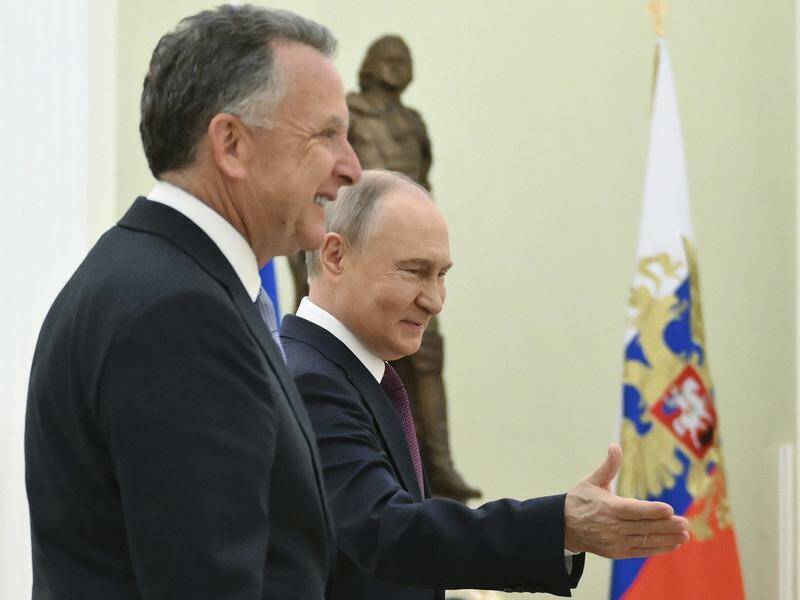
US special envoy Steve Witkoff met with President Vladimir Putin in Moscow as the White House prepares to enforce a deadline for a peace deal regarding Ukraine. The meeting occurred just days before the deadline set by US President Donald Trump, which is set to expire on March 15, 2024. Failure to reach an agreement could result in significant economic penalties for Russia.
Earlier in the day, Witkoff was spotted walking through Zaryadye Park, located near the Kremlin, alongside Kirill Dmitriev, Putin’s envoy for investment and economic cooperation. Dmitriev plays a crucial role in facilitating direct peace talks between Russia and Ukraine, including discussions held in Istanbul in recent months.
Kremlin’s Perspective on the Talks
Kremlin spokesman Dmitry Peskov expressed optimism regarding Witkoff’s visit, highlighting its importance. “We consider talks with Witkoff to be important, substantive, and very useful,” he stated on Wednesday. The discussions come as Trump grows increasingly frustrated with Putin’s lack of progress on a peace deal.
Trump has warned of heavy tariffs on countries buying Russian exports if a resolution is not reached. His administration is particularly focused on India and China, two major purchasers of Russian oil and gas. The Kremlin has rejected these threats, labeling them as illegal and asserting that Russia will not yield to external pressures.
Sources close to the Kremlin indicated that Putin remains confident in his military objectives, prioritizing them over potential diplomatic relations with the United States. “The visit of Witkoff is a last-ditch effort to find a face-saving solution for both sides,” noted Gerhard Mangott, an Austrian analyst. He added that while Russia may express willingness for a ceasefire, it will only do so under terms it has maintained for years.
Challenges Ahead for Witkoff
Witkoff, a real estate billionaire with no prior diplomatic experience, has been tasked with negotiating ceasefires not only in Ukraine but also in the ongoing conflict in Gaza and the crisis surrounding Iran’s nuclear program. Critics have questioned his capacity to engage effectively in high-stakes negotiations with Putin, who has been in power for over 25 years.
In a previous interview with journalist Tucker Carlson, Witkoff suggested that there was no rationale for Russia to seek further territorial control in Ukraine, dismissing the notion that Putin would aim to expand his military presence across Europe. This view contrasts sharply with the perspectives of Ukraine and its European allies, who believe otherwise.
Putin has consistently denied any ambitions to encroach upon NATO territory, framing such accusations as evidence of European hostility and Russophobia. As the deadline approaches, the dynamics of these discussions will undoubtedly shape not only the future of US-Russia relations but also the broader geopolitical landscape.





